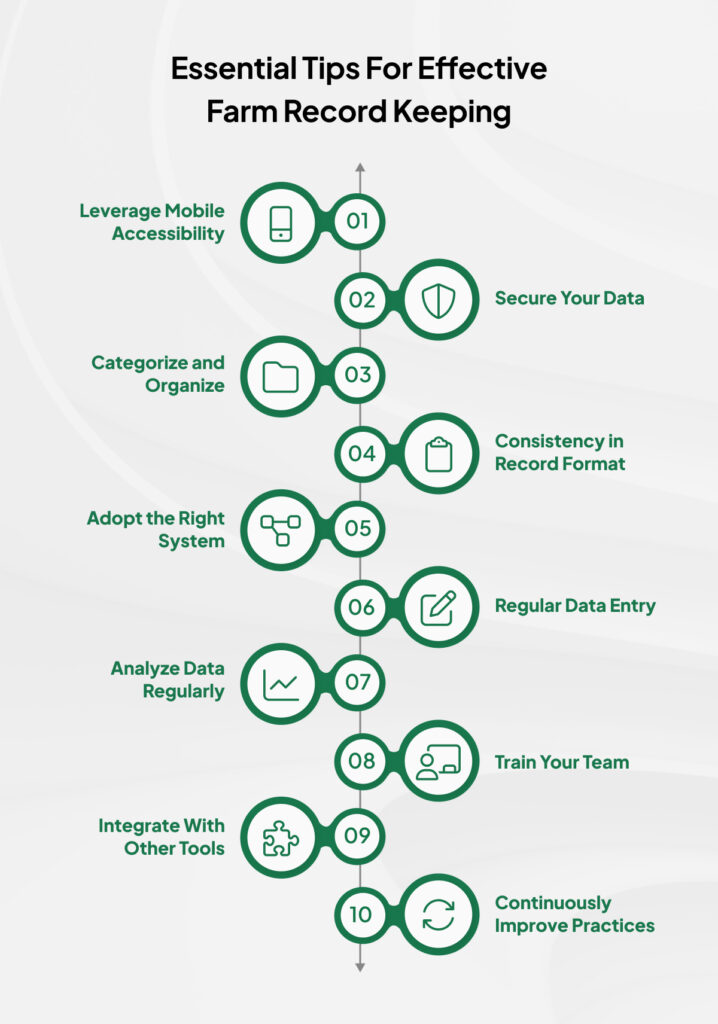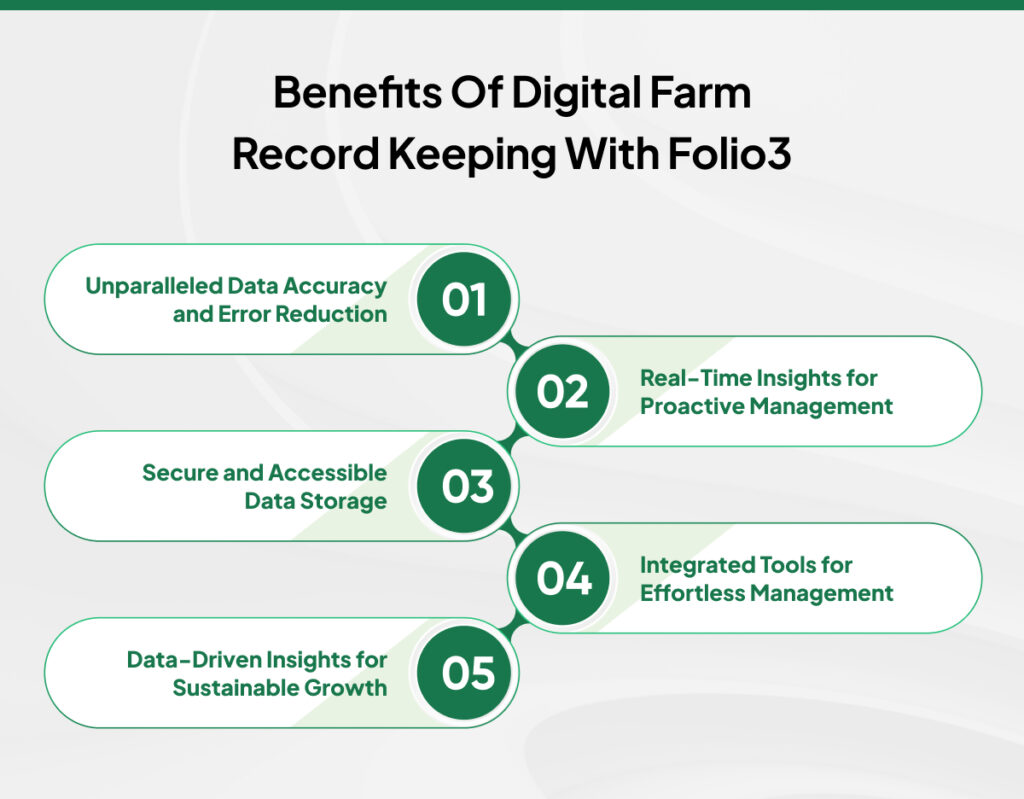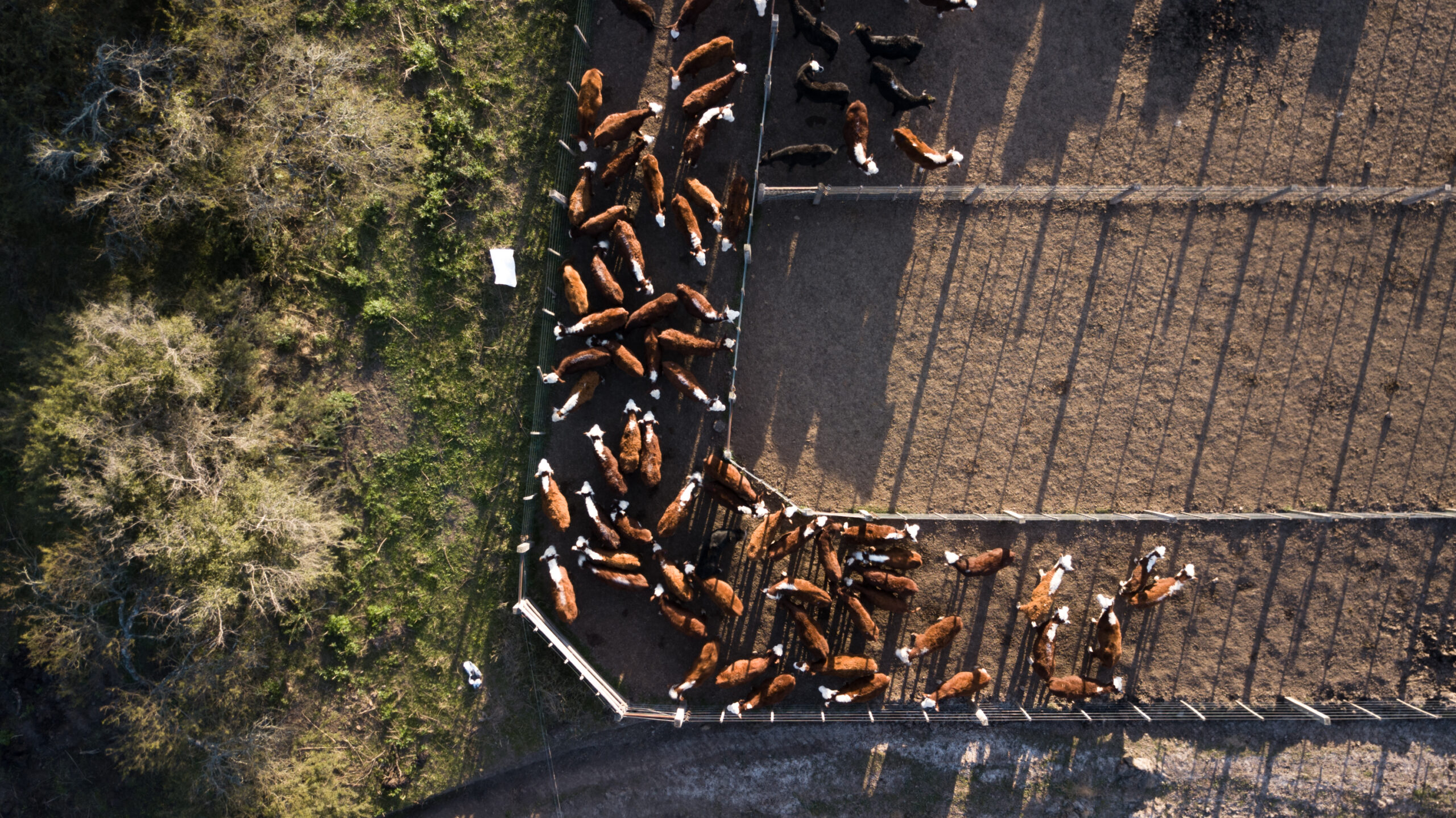Effective farm record keeping is the backbone of successful agricultural operations, yet it remains a significant challenge for many farmers. Studies reveal that nearly 60% of small-scale farmers worldwide need more systematic record-keeping practices, leading to inefficiencies, missed opportunities, and financial strain. In fact, according to a report by the United Nations Food and Agriculture Organization (FAO), farms with poor record-keeping experience up to 30% higher financial mismanagement issues compared to those with structured systems.
Poor record-keeping often results in operational chaos. From failing to track expenses accurately to overlooking essential data like crop yields and livestock health, farmers may miss key deadlines for subsidies, face difficulties securing loans, or need help to meet compliance requirements, all of which can severely impact profitability.
This blog addresses these challenges by providing 10 essential tips for farm record keeping.
What is Record Keeping?
Record keeping systematically organizes, maintains, and stores important data, reports, and documentation related to business activities and transactions. This includes tracking financial records, inventory, customer data, and other relevant information. The goal is to keep all business-related information in one accessible and organized system for future reference.
What is Farm Record Keeping?
Farm record keeping refers to tracking all aspects of farm operations. It involves recording detailed data on the farm’s different enterprises, such as crop farming, livestock management, and other agricultural activities. Enterprises are the various branches of farm operations (e.g., poultry, dairy, vegetable production), and effective record-keeping is essential to managing these complex activities.
Farm record keeping is about maintaining a system where all relevant data—such as inputs, outputs, sales, customer information, and more—can be easily accessed and referred to when needed. Integrating a strong customer data strategy into farm record keeping can help optimize sales, improve service, and build long-term relationships with buyers.
Why is Good Farm Record Keeping Important?
Running a farm involves managing many moving parts, so efficient and effective record-keeping is essential for streamlining operations and ensuring long-term success. Some of the key reasons good farm record keeping is essential include:
- Tax Season and End-of-Year Books: Accurate records help ensure smooth tax filing and financial reporting at the end of the year.
- Auditing for Certifications, Loans, or Grants: Farm records are crucial when applying for grants, loans, or certifications (e.g., organic certification).
- Labour Tracking and Worker Productivity: Proper records help monitor employee performance, track hours worked, and calculate payroll.
- Crop and Herd Planning: Detailed records enable better planning and decision-making for future crop and livestock management.
- Marketing Strategies and Campaigns: Understanding customer preferences and sales trends helps improve marketing strategies.
- Food Safety and Traceability: Compliance with food safety regulations requires accurate records of all farm operations, including tracking the movement of products from farm to table.
- Sales Decisions: Farm records help make key decisions about pricing, packaging, fulfillment options, and sales channels.
Essential Tips for Effective Farm Record-Keeping
Effective farm record keeping is crucial for managing day-to-day operations and ensuring long-term success. By implementing these essential tips, you can create a streamlined and effective record-keeping system that enhances your farm’s operations, boosts financial management, and supports long-term growth and success.
Here are some essential tips to streamline your record-keeping processes and improve efficiency:

Leverage Mobile Accessibility
Utilizing mobile apps to capture and update farm records in real time is a game-changer. This approach ensures that data can be input immediately while on the go, reducing the chances of forgetting important information.
Mobile accessibility helps avoid errors commonly associated with delayed data entry, ensuring your records remain accurate and up-to-date. Additionally, you can access documents anytime, anywhere, allowing for quick decision-making and enhanced operational efficiency. To keep these mobile devices secure and properly managed, farms can use Mobile Device Management (MDM) solutions, ensuring that all apps and data remain safe while staff work remotely.
Secure Your Data
The protection of farm data is paramount. To prevent data loss caused by system malfunctions or natural disasters, it’s essential to implement a robust backup strategy to regularly back up your farm’s records to a secure cloud storage solution. Cloud-based storage offers the benefit of remote access, ensuring that your records are safe, even in a local server crash.
This protection secures your data and helps comply with industry regulations that require farms to maintain records for a set period.
Categorize and Organize
Organizing records into well-defined categories is key to efficient management. Common categories include crop yields, livestock health, expenses, and weather conditions. Keeping records organized allows you to quickly access the necessary information without sifting through irrelevant data.
Categorization also makes it easier to identify trends over time, enabling more precise decision-making. Tracking weather patterns alongside crop yields can help you anticipate future crop performance.
Consistency in Record Format
For long-term success, consistency in entering and formatting records is critical. Use standardized templates for tracking data, whether inputting daily activities, monthly reports, or yearly summaries.
This consistency improves the clarity of your records and makes it easier to compare data over different periods. It also enhances your ability to spot trends or inconsistencies. Teams often add web workbook editing to keep one live version and reduce version mix-ups. Thus, a consistent format improves the accuracy and speed of data analysis.
Adopt the Right System
The choice between manual and digital record-keeping systems depends mainly on the size and complexity of your farm. A manual system may suffice for small-scale operations, but digital record-keeping tools can significantly benefit larger farms.
Consider adopting record-keeping software for your farm like Folio3 AgTech’s. These digital solutions streamline record entry and offer advanced features like automated data analysis and integration with other management systems, improving accuracy and overall efficiency.
Regular Data Entry
A crucial aspect of effective record-keeping is consistency in data entry. It’s easy to put off updating records, but doing so can lead to mistakes or overlooked details. Make it a habit to update your records daily or weekly, depending on the pace of your farm’s operations. Regular updates ensure that no critical information is missed and that your records remain current, which is essential for timely decision-making and accurate analysis.
Analyze Data Regularly
Effective record-keeping goes beyond capturing data—it’s about making the most of it. Set aside time to review your farm records regularly and analyze trends, inefficiencies, and potential growth opportunities.
Regular analysis can reveal patterns that can guide better decision-making, whether optimizing resource use, adjusting crop rotations, or identifying cost-saving measures. By reviewing your records periodically, you can proactively address issues and make informed, data-driven decisions that improve your farm’s overall performance.
Train Your Team
For record-keeping to be truly effective, all team members must be proficient in the chosen system. Whether it’s a manual process or a digital solution, ensure that everyone on your team understands how to input, update, and retrieve records.
Proper training minimizes human error, improves productivity, and ensures consistency in data management. Additionally, a well-trained team ensures that records are entered accurately, helping maintain the integrity of your data.
Integrate With Other Tools
Explore software solutions that integrate seamlessly with other farm management systems, such as inventory management, financial tracking, and supply chain tools. Integration allows you to comprehensively view your farm’s operations, making it easier to cross-reference data and make smarter decisions. For example, connecting your record-keeping system with inventory management software can help maintain optimal stock levels and manage resources efficiently.
Continuously Improve Practices
Farm management is dynamic, and so is record-keeping. Regularly assess your record-keeping practices to identify areas for improvement. Stay informed about the latest technological advancements and software updates that can streamline your processes.
Incorporating feedback from your team and evolving your record-keeping system as your farm grows will ensure that it remains efficient and adaptable to new challenges. You can keep pace with industry changes and maintain a competitive edge by continuously improving your approach.
Benefits of Digital Farm Record Keeping with Folio3
Folio3’s innovative Digital Farm Record Keeping Software revolutionizes farm management by delivering unmatched precision, streamlined processes, and enhanced security. Here’s how this advanced solution empowers farmers to excel:

1. Unparalleled Data Accuracy and Error Reduction
Traditional record-keeping methods are prone to human errors that can compromise decision-making. Folio3 eliminates this challenge by automating data capture and management. This precision translates into better insights and decisions, helping farmers achieve higher productivity and profitability. The software ensures:
- Accurate, error-free records for crops, inventory, and financials.
- Up-to-date, reliable information that enhances operational efficiency.
2. Real-Time Insights for Proactive Management
Folio3’s solution offers real-time access to farm records, enabling farmers to act swiftly and effectively. This agility ensures farms remain resilient and competitive in dynamic agricultural environments. Key benefits include:
- Instant updates on critical metrics like crop health, inventory levels, and weather conditions.
- Quick, data-backed decisions to tackle challenges before they escalate.
3. Secure and Accessible Data Storage
With cloud-based technology at its core, Folio3 safeguards sensitive farm records while offering unmatched accessibility. This combination of security and flexibility provides peace of mind and keeps operations running smoothly. Farmers benefit from:
- Regular backups that protect against data loss due to system failures or unforeseen incidents.
- Remote access from any device, empowering farmers to monitor operations wherever they are.
4. Integrated Tools for Effortless Management
Folio3’s platform integrates seamlessly with other farm management tools, providing a unified ecosystem to manage all aspects of farm operations. By consolidating workflows, farmers can focus more on strategy and growth rather than juggling multiple platforms. Features include:
- Simplified inventory tracking, financial reporting, and crop management.
- A centralized system that reduces administrative burdens and saves time.
5. Data-Driven Insights for Sustainable Growth
Advanced agriculture data analytics within the software empower farmers to analyze performance trends and optimize their resources effectively. These tools enable smarter decision-making, fostering sustainable farming practices and higher returns.
Highlights include:
- Comprehensive reports on resource utilization, crop performance, and operational efficiency.
- Actionable insights that help fine-tune strategies and drive long-term profitability.
What Records Should You Keep for Your Farm?
The records you need to maintain for your farm will vary depending on the size of your operation and the specific types of products or services you offer. However, regardless of the scale, farm records generally fall into several broad categories. Each category is important in helping you manage your farm effectively, comply with regulations, track performance, and plan for future growth.
Here’s a breakdown of the essential farm records you should keep:
1. Financial Records
- Income and Expenses: Document all income sources and expenses, including sales of crops, livestock, and farm-related services or products. Tracking income and expenses is crucial for budgeting, tax filing, and assessing profitability. Using a structured general ledger template can simplify the process by helping farmers record and categorize transactions more efficiently.
- Receipts and Invoices: Keep detailed records of all purchases and sales. Receipts and invoices act as proof of transactions and help you maintain accurate financial records for tax purposes.
- Payroll Records: Track wages paid, taxes withheld, and any other payroll-related expenses. Maintaining accurate payroll records is important for legal compliance and budgeting if you employ workers.
- Tax Records: Maintain copies of all filed tax returns, supporting documents, and other tax-related paperwork. These records are essential for tax preparation and audits.
2. Production Records
- Crop Yields: Record planting and transplanting dates, types of crops grown, quantities harvested, crop rotations, and yields per acre. This data helps you assess your farm’s productivity and plan for future crop production.
- Livestock Records: These records track births, deaths, sales, vaccinations, medical treatments, rotations, and livestock breeding. Proper livestock records are essential for health management, breeding programs, and sales tracking.
- Feed, Fertilizer, and Other Inputs: Keep records of the types, quantities, application dates, and costs of feed, fertilizers, pesticides, and herbicides used on the farm. This information helps you manage input costs and ensures compliance with environmental regulations.
- Pesticides and Herbicides: Document all pesticide and herbicide applications, including the type, quantity, application dates, and any compliance with regulations. This is essential for safety, environmental stewardship, and regulatory requirements.
3. Operational Records
- Equipment Maintenance: Maintain schedules and logs for regular maintenance, repairs, and farm machinery and equipment replacements. Proper equipment maintenance records ensure the longevity of your equipment and help avoid unexpected breakdowns.
- Inventory Records: Track your current stock of seeds, chemicals, feed, tools, and other farm supplies. Inventory records help you manage stock levels and avoid over-purchasing or running out of essential items.
- Land Use Records: Keep maps and records of land use, crop rotation schedules, and soil tests. This will help you plan sustainable farming practices, optimize soil health, and manage land resources effectively.
4. Regulatory Compliance
- Permits and Licenses: Keep copies of all required permits and licenses necessary for your farming operation. These include agricultural permits, water usage permits, and health and safety certifications.
- Environmental Compliance: Maintain records related to environmental practices, such as water use, waste management, and any impact assessments conducted. These are vital for adhering to environmental regulations.
- Animal Welfare Compliance: Document practices and procedures that ensure the welfare of your livestock. This includes veterinary records, animal handling practices, and any certifications related to animal care.
5. Sales and Marketing Records
- Customer Information: Keep detailed customer records, including contact information, order history, and preferences. This helps build customer relationships and provide personalized service.
- Sales Records: Track all sales, including direct sales, wholesale, and CSA memberships. Detailed sales records help you analyze profitability, track sales trends, and make informed business decisions.
- Marketing Campaigns: Document marketing campaigns, promotions, and advertising efforts. This includes digital ads, social media campaigns, print ads, and other promotional activities. Understanding the effectiveness of your marketing helps you refine strategies for future success. As a flow state sales expert says, the MEDDIC Sales Process can help your business generate more sales.
6. Labour Records
- Employee Information: Keep detailed records of employee contact information, job descriptions, and employment agreements. This is essential for labor law compliance and to ensure a well-organized workforce.
- Work Schedules: Track hours worked, shifts, and labor assignments. This information is important for calculating payroll, managing labor costs, and ensuring compliance with labor laws.
- Training Records: Keep records of training sessions, safety certifications, and any professional development completed by your employees. This helps ensure that workers are well-trained in farm operations and safety protocols.
7. Insurance Records
- Policies: Keep copies of all insurance policies covering the farm, including liability, crop, equipment, and property insurance. Insurance records are essential for claims and policy renewals.
- Claims: Document any insurance claims you file, including the outcome and all related correspondence. This can be important in case of disputes or future claims.
8. Safety Records
- Incident Reports: Record any accidents, injuries, or safety-related incidents on the farm. These reports are essential for identifying potential hazards and implementing safety improvements.
- Safety Training: Record safety training sessions and certifications. This is essential to ensure that farm workers are trained in safety procedures and comply with workplace safety regulations.
9. Other Records
- Contracts and Agreements: Keep copies of all contracts, leases, and agreements related to the farm, including agreements with suppliers, customers, and employees.
- Correspondence: Save essential emails, letters, and other communication related to your farming operations. These can provide valuable documentation for decision-making or resolving disputes.
- Software and Tools: Track all software and technological tools you use on the farm, including subscription details, licenses, and login information. This is essential for managing digital tools and maintaining security.
Conclusion
Effective farm record keeping is critical for agricultural businesses’ smooth operation and long-term success. Farmers can streamline operations, improve financial management, ensure regulatory compliance, and make data-driven decisions that promote growth by maintaining organized and accurate records.
Whether through mobile tools, digital systems, or manual methods, keeping detailed and well-organized records with Folo3 farm record keeping software is an investment in a farm’s future. By implementing these essential tips for farm record keeping, farmers can ensure better operational efficiency and enhance their ability to respond to challenges and capitalize on opportunities.
FAQs
What Is The Best Way To Start Keeping Records For My Farm?
Financial records are a good first step, followed by production and operational records. Digital tools or apps can make record-keeping more straightforward and efficient, ensuring that all critical data is organized.
How Often Should I Update My Farm Records?
It is recommended to update your records daily or weekly, depending on the pace of your operations. Regular updates ensure no crucial information is missed and your records remain accurate and relevant.
Can I Use Mobile Apps For Farm Record-Keeping?
Yes, mobile apps are excellent tools for capturing and updating farm records in real time, especially on the go. This ensures that your records are always up to date and accessible for quick decision-making.
Why Is It Important To Categorize Farm Records?
Categorizing farm records helps you stay organized and ensures the relevant information is easy to find. It also enables better analysis by helping you identify trends and patterns within each category, such as crop yields or livestock health.
How Can Digital Farm Record-Keeping Software Improve My Farm Management?
Digital record-keeping software offers automated data entry, real-time data access, secure cloud storage, and integration with other farm management tools. This enhances accuracy, reduces errors, and streamlines operations, ultimately saving time and improving decision-making.
What Kind Of Records Are Necessary For Regulatory Compliance?
Regulatory compliance records include permits and licenses, environmental practices, animal welfare documentation, and safety certifications. Keeping these records updated helps ensure that your farm complies with legal and environmental standards.
How Can Farm Record-Keeping Improve My Marketing Strategies?
Farm record-keeping tracks sales and customer information to help you understand market trends and preferences. This data allows you to refine your marketing campaigns and make informed pricing, promotions, and customer outreach decisions.
Can Farm Record-Keeping Software Integrate With Other Farm Management Tools?
Many farm record-keeping software solutions integrate with other tools, such as inventory management, financial tracking, and crop management systems. This integration provides a comprehensive view of farm operations and helps improve overall efficiency.





